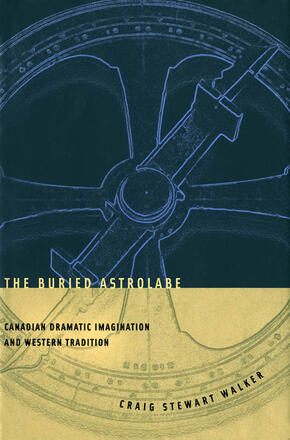
The Buried Astrolabe
Canadian Dramatic Imagination and Western Tradition
La description
Astrolabe / æstræ leÓb/ n. an instrument consisting of a disc and pointer, used to make astronomical measurements, especially of the altitudes of celestial bodies, and as an aid in navigation. Over the last two decades Canadian drama has emerged as an important presence in international theatre. In The Buried Astrolabe Craig Walker offers a critical introduction to contemporary Canadian playwriting, providing a context for the study of Canadian drama and showing how it developed from Western European philosophical, literary, and dramatic traditions. Walker devotes the main body of his work to critical readings of James Reaney, Michael Cook, Sharon Pollock, Michel Tremblay, George F. Walker, and Judith Thompson, respecting the distinctive elements of the writer’s voice while helping the reader appreciate the cultural context that informs each play. He analyses the poetics or mythological underpinning of the works and investigates the cultural significance of the tropes that typify their works. The Buried Astrolabe stakes the claim of Canadian playwrights to be considered among the most important in the contemporary world.
Reviews
"One of the most important books ever written on Canadian drama, containing some of the most perceptive and well-informed criticism anywhere on six of Canada's leading playwrights. Walker's ideas are thoughtful, stimulating, and engaging. Above all, The Buried Astrolabe significantly broadens the context for our understanding of Canadian drama. " L. W. Conolly, Department of English, Trent University "The Buried Astrolabe is the most comprehensive, enlightening, and entertaining study of the subject which I have encountered. Walker's scholarship is exemplary, drawing on a wide range of writers and thinkers from European and North American tradition. " Anne Nothof, Professor of English, Centre for Language and Literature, Athabasca University